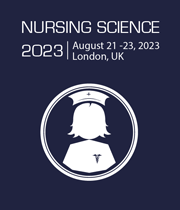Title : The status of simulation utilization in long-term care settings in the USA: Opportunities for nursing education
Abstract:
Long-term facilities in the United States are charged with the provision of quality care to those it serves. The adoption of an innovative educational strategy could assist in enhancing patient outcomes. The aim of this non-experimental, exploratory, descriptive correlational study design was to explore the current status of simulation utilization in LTC settings to determine their organizations’ readiness to adopt this innovative education strategy.
Results of this study identified the current status of simulation utilization in LTC settings in the United States and quantify Directors of Nursing Services perceived overall readiness to adopt simulation. This study found 73% of the 52 respondents did not use simulation. Of those who did, manikins were the predominant modality (57.14%). The Simulation Culture Organizational Readiness Survey (SCORS) instrument with modifications was used to with permission to capture the key tenets of organizational readiness. The Total Overall SCORS-M Score mean of 87.49 (range of 42-178) indicated that LTC settings were “Somewhat” ready to adopt simulation. A call for further research to examine the current state of simulation utilization on a broader scale to enhance outcomes and potentially improve the quality of care rendered to those residing in LTC settings in the United States is warranted.
Audience Take Away Notes:
1. Describe the current state of simulation utilization in LTC settings in the United States
2. Identify how Directors of Nursing Services in LTC settings rate their organizations’ readiness for simulation- based education integration
3. Identify opportunities for collaborative simulation-based education activities between LTC settings and academic nursing institutions


